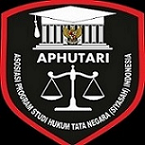Psikologi Maryam dalam Al-Qur’an
Abstract
The Qur'an provides motivation or encouragement for humans to think about their personality, about the extraordinary creation of Allah SWT with all the uniqueness in every event. This is the impetus for humans to conduct research on the soul and its secrets. As contained in the letter Ali-Imran verses 42-48 regarding Psychology Maryam faced extraordinary events during the moments of the birth of the prophet Isa as. The formulation of the problem in this study is how Maryam's character is immortalized in the Qur'an, and how is Maryam's psychology in the Qur'an based on the thematic interpretation approach to Q.S. Ali-Imran: 42-48). The type of research used in this thesis is library research. Sources of data used in this thesis are in the form of primary library materials such as the Qur'an and interpretation books such as Tafsir Al-Azhar. The secondary data sources include commentaries, books and scientific papers related to research. The results of the study indicate that the character Maryam enshrined in the Qur'an is a woman chosen by Allah SWT because she comes from a good lineage, worships a lot, zuhud, is noble and purified from various forms of doubt and bad character. As for Maryam's psychology, based on the explanations of several commentators, namely Maryam has a good and tough personality, it can be seen from Maryam's obedient attitude and does not deny the news of her pregnancy which was conveyed through the angel Gabriel, even though Maryam is not married and has never been touched by any man. The good personality embedded in Maryam comes from a very conducive childhood background, she was born to pious parents and was raised by a prophet, namely the prophet Zakaria as.
Keywords
Full Text:
PDFReferences
Referensi
a. Sumber Buku
Al Qurthubi, Imam. Tafsir Al Qurthubi Jilid 4. Jakarta: Pustaka Azzam, 2007.
Ash Shabuny, Muhammad Ali. Kenabian dan Para Nabi, penerjemah: Arifin Jamian Maun. Surabaya: Bina Ilmu, 1993.
dkk, H. M Darwis Hude. Cakrawala Ilmu Dalam Al-Qur’an. Jakarta: Pustaka Firdaus, 2002.
Hamka. Tafsir Al-Azhar Juzu’ II. Jakarta: Pustaka Panjimas, 1983.
Hs, Fachruddin. Ensiklopedia Al-Qur’an Jilid II. Jakarta: Rineka Cipta, 1992.
Katsir, Ibnu. Kisah Para Nabi: Sejarah Lengkap Kehidupan Para Nabi Sejak Adam as Hingga Isa as, penerjemah: Saefullah MS. Jakarta: Qisthi Press, 2015.
Quthb, Sayyid. Tafsir Fi Zhilalil Qur’an: Di Bawah Naungan Al-Qur’an Jilid 3. Jakarta: Gema Insani Press, 2001.
b. Sumber Jurnal
Harahap, Khoirul Anwar Umar. “Wanita Karir Dalam Pandangan Hadis.” Al-Fawatih: Jurnal Kajian Al-Qur’an dan Hadits, vol. 1, no. 1. 2020.
Harahap, Sumper Mulia. “Mukjizat Al-Qur’an.” Jurnal Al-Maqasid: Jurnal Ilmu Kesyariahan dan Keperdataan, vol. 4, no. 2. 2018.
Nasution, Muhammad Arsad. “Urgensi Sains Dalam Penerapan Petunjuk Al-Qur’an dan Hadits (Analisis Terhadap Metode Penetuan Arah Kiblat, Hisab Rukyah dan Waktu Shalat Dalam Ilmu Falak.” Jurnal Al-Maqasid: Jurnal Ilmu Kesyariahan dan Keperdataan, vol. 7, no. 1. 2021.
Ritonga, Hasir Budiman. “Hubungan Ilmu dan Agama Ditinjau Dari Perspektif Islam.” Al-Maqasid: Jurnal Kesyariahan dan Keperdataan, vol. 5, no. 1. 2019.
Sati, Ali. “Mengelola Konflik Dalam Rumah Tangga (Catatan Kecil Sebuah Pernikahan Dalam Islam).” El-Qanuniy: Jurnal Ilmu-Ilmu Kesyarihaan Dan Pranata Sosial, vol. 6, no. 2. 2020.
Simanjuntak, Dahliati. “Etika Berbahasa Persfektif Al-Qur’an.” Yurisprudentia: Jurnal Hukum Ekonomi, vol. 3, no. 2. 2017.
Siregar, Khoiria. “Fenomena Hoax Dalam Al-Qur’an Perspektif Tafsir Maqasidi.” Al-Fawatih: Jurnal Kajian Al-Qur’an dan Hadits, vol. 1, no. 2. 2020.
Siregar, Lis Yulianti Syafrida. “Penyimpangan Perilaku Seksual Terhadap Tindak Pidana Mutilasi; Suatu Tinjauan Psikologi Kriminal.” Jurnal El-Qanuniy: Jurnal Ilmu-Ilmu Kesyariahan dan Pranata Sosial, vol. 6, no. 2. 2020.
Siregar, Sawaluddin. “Munasabat Al-Qur’an Perspektif Burhanuddin Al-Biqa’i.” Yurisprudentia: Jurnal Hukum Ekonomi, vol. 4, no. 1. 2018.
DOI: https://doi.org/10.24952/el-thawalib.v3i1.5080
Refbacks
- There are currently no refbacks.









Editorial Office Board :
Kampus UIN Syekh Ali Hasan Ahmad Addary Padangsidimpuan
Jl. T Rizal Nurdin No.Km 4, RW.5, Sihitang, Padangsidimpuan Tenggara, Kota Padang Sidempuan, Sumatera Utara 22733
 Jurnal El-Thawalib is licensed under a Creative Commons Attribution-ShareAlike 4.0 International License.
Jurnal El-Thawalib is licensed under a Creative Commons Attribution-ShareAlike 4.0 International License.
View My Stats






